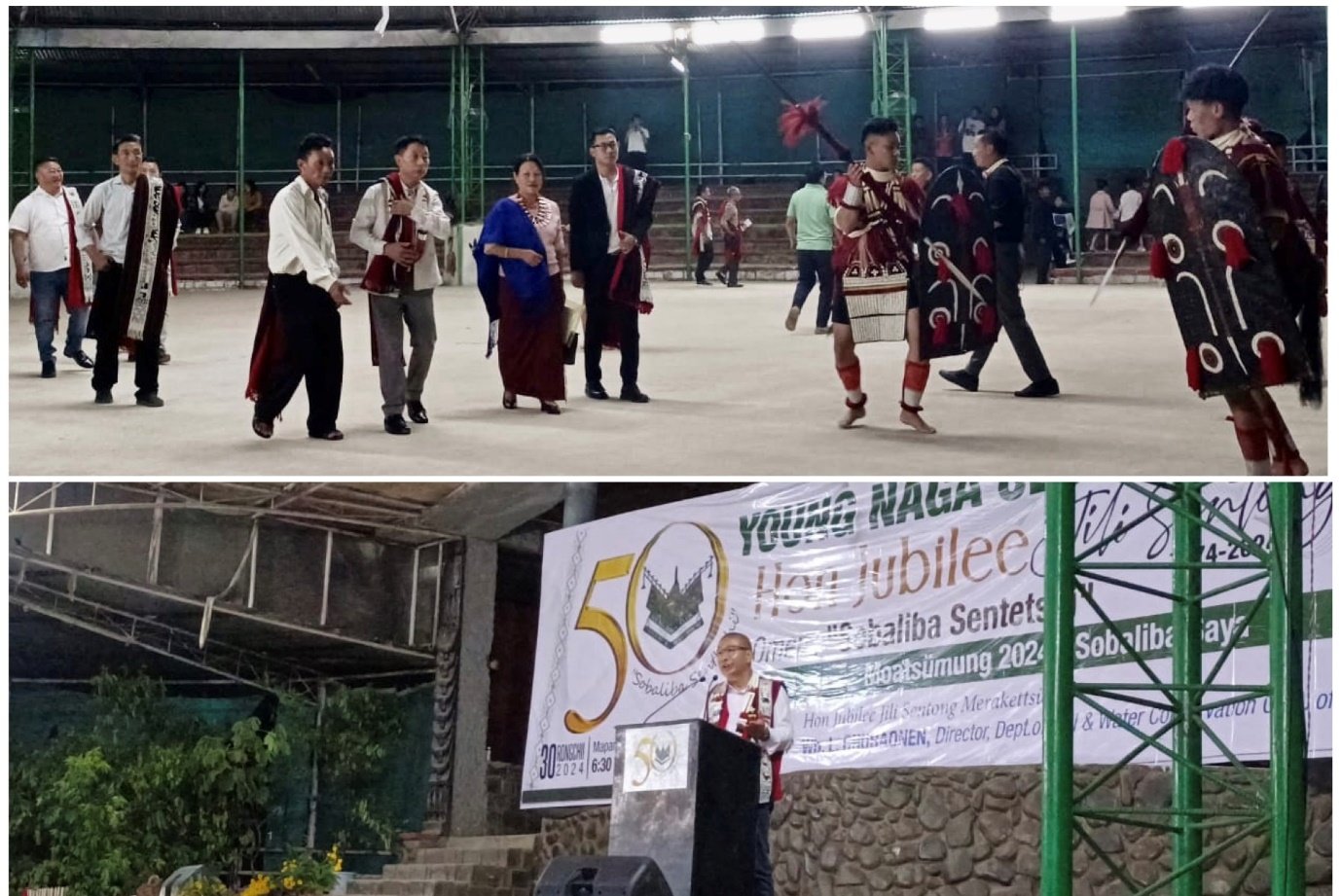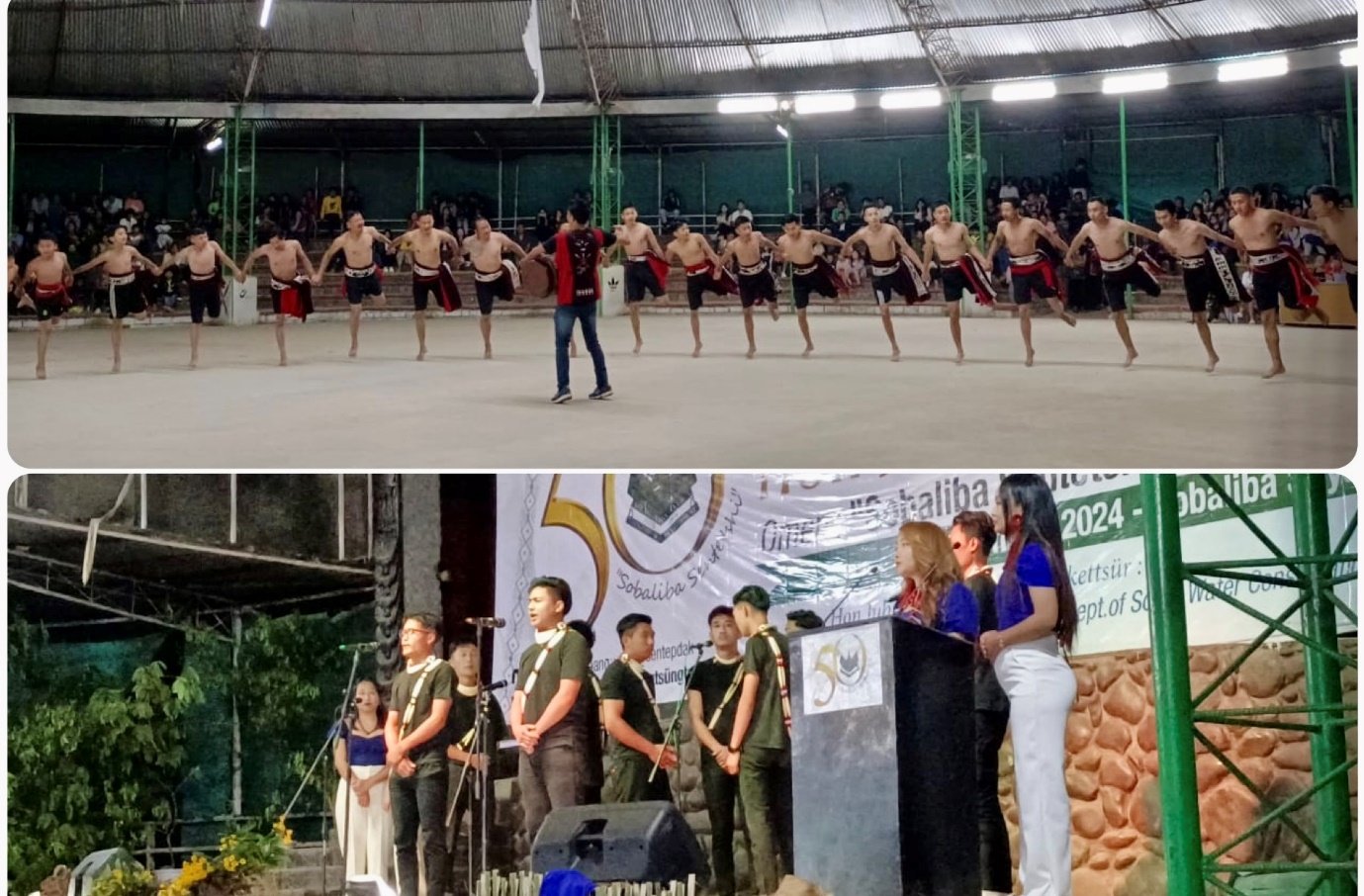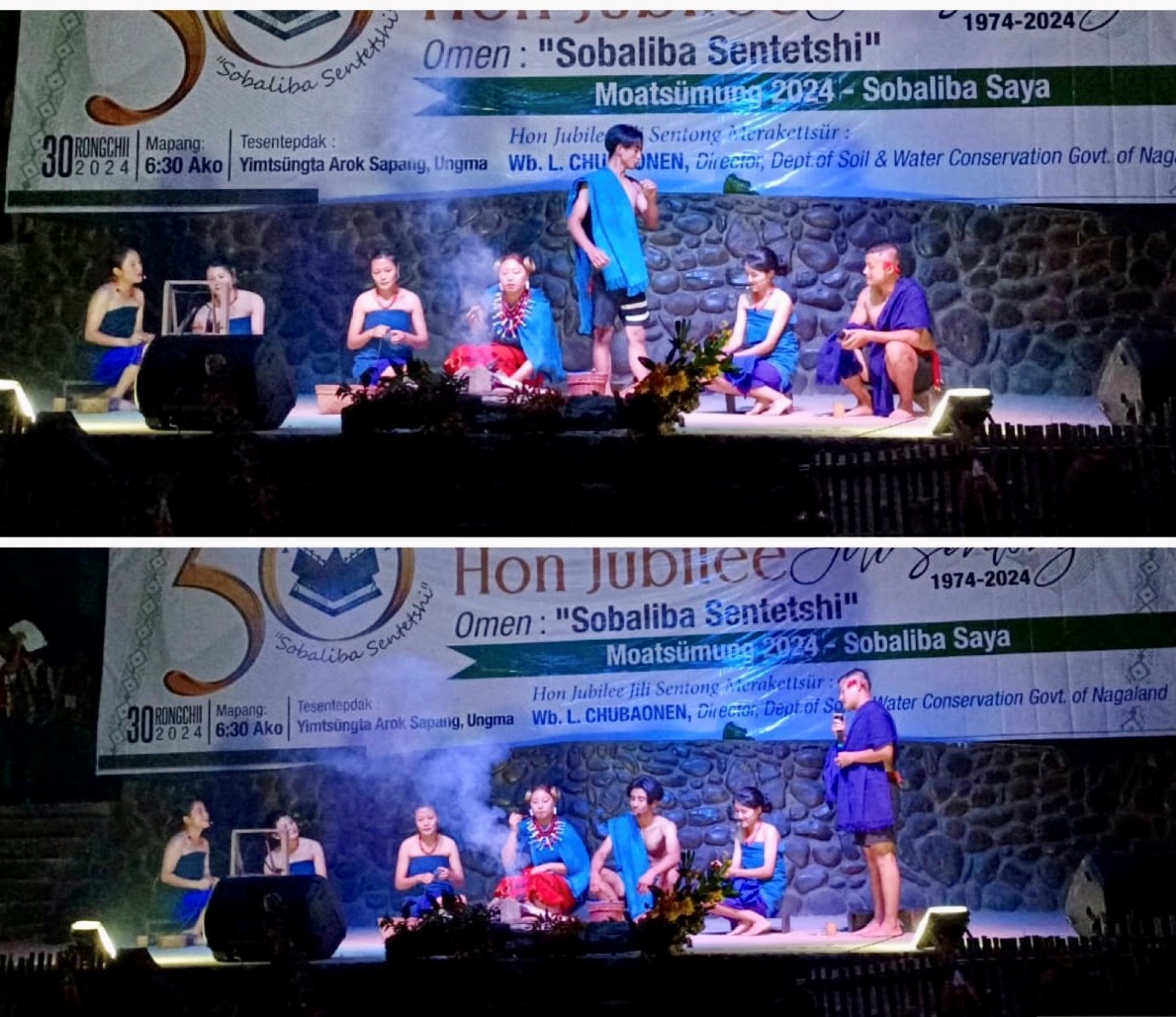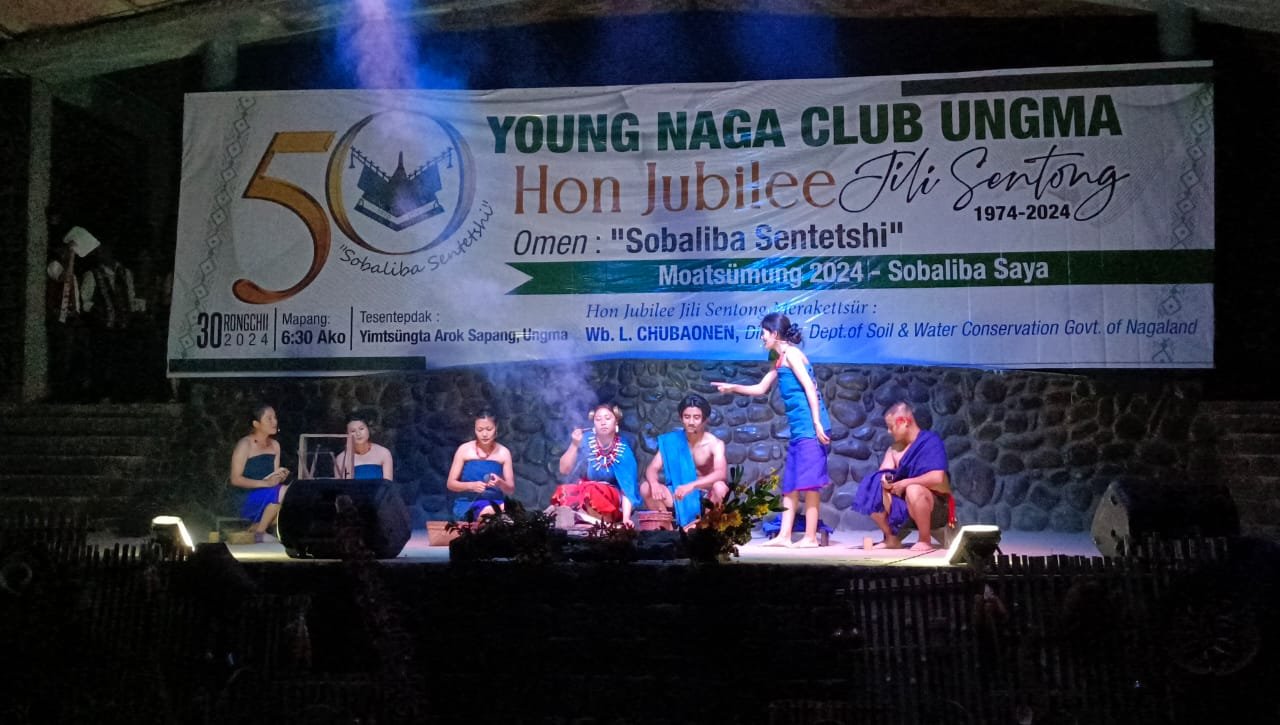The Young Naga Club Ungma (YNC) commenced its advance Year-long Golden Jubilee festivities at Yimtsüngta Arok Sapang (Amphitheatre), Ungma, coinciding with the Moatsü Festival on 30 April 2024. The event, themed “Sobaliba Sentetshi” (Refining Culture), was graced by L. Chubaonen, Director of the Department of Soil & Water Conservation, Government of Nagaland, who served as the Guest of honour.
In his address, L. Chubaonen reflected on the last 50 years from 1974 to 2024, highlighting the challenges faced by India, Nagaland, and Ungma Village. Despite these challenges, he commended the initiative of forefathers who established clubs, which are still thriving today under the stewardship of the younger generation. Chubaonen drew parallels between human life and the rebirth process of eagles, emphasizing the need for personal growth and change.
Download Nagaland Tribune app on Google Play

Quoting Isaiah 40:31, he stressed the importance of unity and leaving behind negative influences for a new beginning. He urged people to prioritize health, leadership, and positivity while questioning the necessity of change and cultural refinement for survival.

L. Chubaonen (left), Director Soil & Water Conservation, GoN and Dr Noklen Longkümer (right) President, Young Naga Club
Looking ahead to the Young Naga Club Ungma’s Golden Jubilee in December 2024, he outlined the benefits of cultural refinement, including education, artistic appreciation, and personal development. Chubaonen proposed resolutions focusing on academic paradigm, re-skilling, livelihood sustainability, and the perpetuity of cultural refinement.
He concluded by stating “Cultural refinement is a continual process that contributes to personal engagement and social processes, fostering a more enlightened and harmonious world.”

In his address, Vice President Imtisungkum Tatar of Ungma Senso Mungdang explained the significance of the Moatsü Festival, highlighting it as a time for jhum cultivation, burning, sowing, and seeking blessings for abundant crops from God. He emphasized that among the numerous festivals celebrated by our forefathers, Moatsü Festival and Tsüngremmong are the most important, although the celebration now spans three days instead of the traditional six days which is celebrated by the Ao’s in general. Tatar also commended the Young Nagaland Club (YNC) for its cultural shows, cultivating a culture commitment and encouraged the younger generation to preserve and refine their cultural heritage.

Kikumzulu, Convenor of the Planning Committee, announced the commencement of the year-long Golden Jubilee celebration of the YNC, established in 1974, urging members and young people to nurture their talents and cultural knowledge.
Convenor highlighted some lines shared by Alemtemshi Jamir, former Chief Secretary of the Government of Nagaland, describing the Ao community as inherently democratic, living a consensual way of life where Jamir also said that Ao’s are straightforward, creativity, progressive, liberal, legal-minded, during the Ao Senden General Conference on April 25 and urged club members and all to uphold these virtues.

Dr. Noklen Longkümer pronounced the invocation, while Toshiwapang Imsong, President of YNC, delivered the welcome address. The opening ceremony featured traditional dances and folksongs presented by The Young Naga Club. The Tongpu Club showcased mixed folksongs, while the Oriental Club presented ‘Kongshir Ken’. The YNC’s Former Office Bearers performed a Cultural Song, and Season Star presented a Cultural dance named ‘Salokse’. This was followed by Cultural Shows 1 and 2, along with a cultural dance by the United Soyim Club. Ayangba Longkümer, Youth Director of UBA, pronounced the benediction.
It was informed that there are ten clubs in Ungma Village. Among the attendees were AKM, OKM, the Ungma Village Council, various dignitaries, villagers, and well-wishers.

